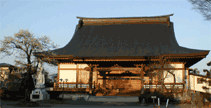  |
Can't read/view Japanese characters?
Try the romaji version instead.
Lesson 6: I don't read books.
| This lesson is about the Japanese particle を. Wo is pronounced 'o' and will be spelled 'o' in romanized Japanese but should not be confused with the vowel お. を is only used as a particle. It is used to mark the object of a sentence. The particle comes after the object and before the verb. Basically, you have "noun を action verb" which means: "do/does the action verb to the noun." | |
| にほんごを べんきょう します | study Japanese language |
| ほんを よみます | read a book |
| ざっしを よみます | read a magazine |
| にくを たべます | eat meat |
| りんごを たべます | eat an apple |
| テレビを みます | watch TV |
| コーラを のみます | drink cola |
| おんがくを ききます | listen to music |
| One can also attach a subject to the sentence to explain who or what is doing the action. |
|
| Examples: わたしは ほんを よみます。 |
I read books. |
|
アンナさんは にほんごを べんきょう します。 |
Anna studies Japanese. |
|
よしさんは おんがくを ききます。 |
Yoshi listens to music. |
|
あのねこは りんごを たべます。 |
That cat over there eats apples. |
| Well, that's all well and good, but what if you want to say you don't eat meat? or don't drink coffee? Notice that all of the verbs above end in ます. That is called the masu ending. (It's pronounced like the 'moss' that grows on the ground.) That is the positive present (or future) form of the verb in polite form. If you want to use the negative present form of the verb you change the ます to ません. So "I listen", "わたしは ききます", becomes "I don't listen", "わたしは ききません" |
|
|
Examples: わたしは ほんを よみません。 |
I don't read books. |
|
メアリーさんは りんごを たべません。 |
Mary doesn't eat apples. |
|
わたしの ねこは バナナを たべません。 |
My cat doesn't eat bananas. |
|
マイクさんは にほんごを べんきょう しません。 |
Mike doesn't study Japanese. |
|
べんきょう します ~ます |
object marker (particle) apple banana TV cola music to study present positive verb form |